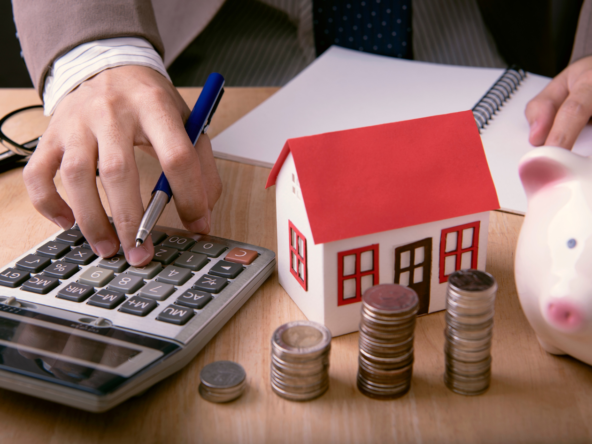Introduction
So, you’re ready to take the plunge into homeownership in Grand Forks? Congratulations! It’s an exciting journey, but it can also feel overwhelming, especially if you’re a first-time buyer. Don’t worry; I’ve got your back. In this guide, we’ll walk through everything you need to know to navigate the market like a pro.
Understanding the Grand Forks Market as a Buyer
Buyer Real Estate Trends
Buyer’s Market vs. Seller’s Market : Knowing whether it’s a buyer’s or seller’s market is crucial for homebuyers. In a buyer’s market, there are more homes for sale than there are buyers, giving buyers more negotiating power [ 1 ]. Conversely, in a seller’s market, demand exceeds supply, leading to higher prices and potentially multiple offers on properties [ 2 ].
Average Home Prices : Understanding the average home prices in Grand Forks provides insight into affordability and market trends. Tracking fluctuations in prices over time can help buyers identify the best times to make a purchase [ 3 ].
Buyer Affordability
Grand Forks is known for its affordable housing compared to many other parts of the country. However, it’s crucial to assess your budget realistically. Consider factors like your income, debt, and future expenses. Don’t forget to account for property taxes, insurance, and maintenance costs.
Neighborhoods
Grand Forks offers a variety of neighborhoods, each with its own unique charm. From bustling downtown areas to quiet suburban streets, there’s something for everyone. The Riverside neighborhood is one of my absolute favorites and of course Reeves Drive is one of the most picturesque neighborhoods in all of Grand Forks. Also, one key factor that I like to call the “Escape Factor” which is that I consider “How fast can I get from my house to Washington St., Demers Ave., or 32nd Ave?” Take the time to explore different neighborhoods to find the one that best fits your lifestyle and preferences.
Financial Preparation
Buyer Budgeting
Creating a budget is the cornerstone of successful home buying. Start by evaluating your monthly income and expenses. How much can you comfortably afford to spend on a mortgage each month? Remember to factor in other costs like utilities, groceries, and entertainment. Also, don’t forget that you aren’t just paying down the cost of the house. You are also paying an annual property tax, homeowners insurance, and depending on the size of your down payment you may have to pay a Private Mortgage Insurance or PMI. For more information on budgeting, check out my article “Smart Budgeting: Preparing for Your First Home” to get started.
Mortgage Pre-Approval
Getting pre-approved for a mortgage is a game-changer in the home buying process. It shows sellers that you’re serious and capable of securing financing. Plus, it gives you a clear picture of your budget, so you can shop with confidence. The pre-approval is essentially a must have in today’s market.
Down Payment
Saving for a down payment is often the biggest hurdle for first-time buyers. While conventional wisdom (that you will most likely hear from your uncle at the family party) suggests putting down 20%, however there are many programs available that require less. Explore your options and find the down payment strategy that works best for you. North Dakota has many great programs that I can help you dig through to find the one that matches your needs the best.
Finding the Right Home
Buyer Must-Have Features vs. NEEDS
Once you have been pre-approved and figured out all your financials, make a list of your must-have features and amenities. Do you need a certain number of bedrooms or bathrooms? Is a backyard essential for your furry friends? Having a clear vision of what you’re looking for will streamline your search. Now that you have written down all your hopes and dreams, it’s time to actually get serious and write down what your REALLY NEED. Those wants can get in your way of finding the home that gives you everything you need. The marble bath tub with 24 karat gold fixtures and built-in towel dryer might have to just stay a dream for now.
A Buyer Working with a Realtor
A knowledgeable real estate agent can be your greatest ally in finding the perfect home. We have access to exclusive listings and can guide you through the negotiation process. Plus, our expertise can help you avoid potential pitfalls along the way. I like to think of myself as the friend you call when you are getting ready to go shopping. I will be real with you and tell you if that dress doesn’t fit you just right or if that tie doesn’t quite match the coat. No sugar coating here only the truth you need to hear to help you to get into the best home for YOU.
Making an Offer
Buyer Negotiation Tactics
When it comes time to make an offer, don’t be afraid to negotiate. Your realtor can help you craft a competitive offer that reflects market conditions and your budget. Be prepared to compromise, but also know when to stand your ground. As long as you are being reasonable, I am a firm believer in the “never hurts to ask” concept. However, remember that the key is to remain reasonable.
Home Inspection
Before finalizing the deal, schedule a home inspection. A qualified inspector will assess the property for any potential issues or red flags. This step is crucial for ensuring you’re making a sound investment and can save you from costly surprises down the road. The inspection sounds scary and intrusive, but it isn’t. It is a necessary step in ensuring you are getting the value that you are expecting out of this huge purchase you are making.
Closing the Deal
Understanding Closing Costs as a Buyer
Closing costs can add up quickly, so it’s essential to understand what you’re paying for. From loan origination fees to title insurance, there are several expenses to consider. Your lender will provide you with a detailed breakdown of closing costs before the big day. This is one of those things that varies so much it’s not worth trying to lock it down in one paragraph. Your scenario could be dramatically different from another, but just be confident in your agent that he or she and the lender will explain it all to you line by line.
Buyer Final Walk Through
Before closing, schedule a final walkthrough of the property. This is your last chance to ensure everything is in order before you take possession. Check that any agreed-upon repairs have been completed and that the home is in the same condition as when you made your offer.
Post-Purchase Tips
Home Maintenance
Owning a home comes with ongoing maintenance responsibilities. Create a maintenance schedule to keep your property in top condition. From lawn care to HVAC servicing, staying proactive will save you time and money in the long run.
Getting Involved in the Community
Now that you’re settled into your new home, why not get involved in the community? Grand Forks has a vibrant social scene with plenty of opportunities to connect with your neighbors. Join a local club or volunteer organization to meet new friends and make a difference. Hit the gym or walk the Greenway and get out there and enjoy this amazing city! If you are interested in following along with all things Living Legendary in Grand Forks , you can sign up for my monthly newsletter by clicking here .
Conclusion
Congratulations, you’re officially ready to be a homeowner in Grand Forks! By following these essential tips, you’ve navigated the market with confidence and ease. Remember, buying a home is a significant milestone, but it’s just the beginning of your journey. Enjoy making memories in your new space and embracing all that Grand Forks has to offer.
FAQs
1. How long does it typically take to buy a home in Grand Forks?
The home buying process can vary depending on factors like market conditions and financing. On average, it takes about 30-45 days from offer to closing.
2. Are there any first-time homebuyer programs available in Grand Forks?
Yes, there are several programs available to assist first-time buyers with down payment assistance and closing cost credits. Your real estate agent can provide more information on eligibility requirements.
3. What are some common pitfalls to avoid when buying a home?
One common pitfall is not getting pre-approved for a mortgage before starting your search. Additionally, skipping the home inspection can lead to costly repairs down the road.
4. How much should I budget for home maintenance expenses?
As a general rule of thumb, budgeting 1-3% of your home’s purchase price for annual maintenance expenses is a good starting point. However, this can vary depending on factors like the age and condition of the property.
5. Can I negotiate closing costs with the seller?
While it’s less common to negotiate closing costs with the seller, it’s not entirely unheard of. Your realtor can advise you on the best negotiation tactics based on market conditions and the seller’s circumstances.




